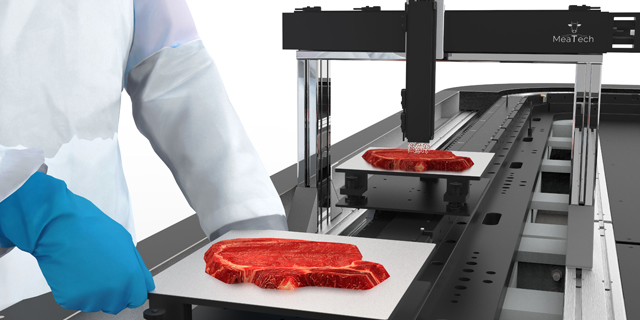
‘Project Carpaccio’ a success, declares meat-printing startup
MeaTech’s next goal on the path to industrial-scale manufacturing is a child’s portion-sized steak
Ctech | 14:14, 17.08.20
MeaTech Ltd. the Israeli startup that is developing technology for bioprinting meat using stem cells announced on Monday that it had reached a substantial product milestone. The company said its scientists had successfully printed a layer of meat combining both muscle and fat cells that successfully fused.
MeaTech added that reaching the strategic milestone ahead of its pre-set schedule means they are well on their way to hit the next milestone, which is printing a 100-gram (quarter pound) steak, without harming any animals.
As part of the experiment, dubbed “Project Carpaccio,” MeaTech researchers were able to print a thin slice of meat consisting of muscle and fat cells extracted from stem cells. The company developed the entire growth process of the tissue components and then performed the 3D printing using a dedicated printer, developed in house.